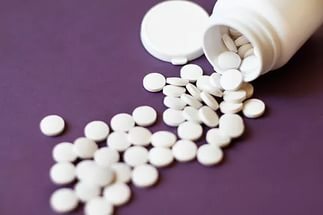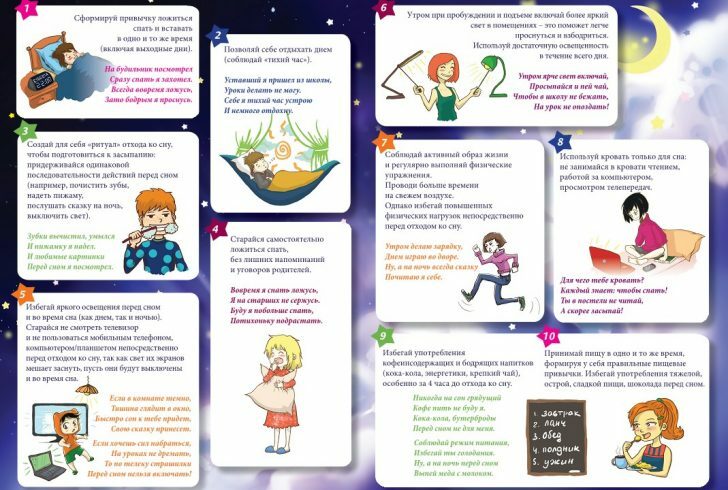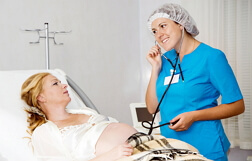Premenstrual syndrome - symptoms, causes, treatment

Many believe that premenstrual syndrome is another female "whim", a manifestation of character and banal whims.But doctors take the phenomenon quite seriously - conduct various kinds of research, select medicines to facilitate the condition of women, and develop preventive measures.
Table of contents: What is known about premenstrual syndrome Causes of PMS Symptoms and signs of PMS Assistance to women with PMSWhat is known about premenstrual syndrome
 I wanted to buy a ring myself, crying at the sight of a neighbor's baby, feel that feelings for my husband have passed?Do not make hasty conclusions, but try to quickly navigate - how soon should the menstruation begin.Such strange, unmotivated behavior is most often explained by premenstrual syndrome.Surprisingly, as early as the beginning of the 20th century, such deviations were considered a sign of the development of mental illness, and only after the research doctors and scientists made an unambiguous conclusion - the condition in question is directly related to fluctuations in the level of hormones in the blood, which are considered regular.
I wanted to buy a ring myself, crying at the sight of a neighbor's baby, feel that feelings for my husband have passed?Do not make hasty conclusions, but try to quickly navigate - how soon should the menstruation begin.Such strange, unmotivated behavior is most often explained by premenstrual syndrome.Surprisingly, as early as the beginning of the 20th century, such deviations were considered a sign of the development of mental illness, and only after the research doctors and scientists made an unambiguous conclusion - the condition in question is directly related to fluctuations in the level of hormones in the blood, which are considered regular.
For example, if the level of estrogen and / or progesterone decreases, this can trigger:
- increase in monoamine oxidase level - this substance is produced by brain tissue, its elevated level causes depression;
- lowering serotonin levels - the substance is also excreted by the brain tissue, but it affects mood and activity;
- increases the production of aldosterone - it provokes various changes in the body, from taste preferences to a feeling of fatigue.
Premenstrual syndrome may occur in different ways: in some women this condition practically does not change the habitual way of life, but some representatives of the fair sex experience literally suffering from their own irritability, mood changes and even hysterics.The only thing that always indicates the manifestation of premenstrual syndrome is its cyclical nature.Remember one simple fact - if any deviations in behavior and health appear on specific days of the menstrual cycle, and with the arrival of the menstrual cycle or immediately after them disappear, this is clearly a premenstrual syndrome.
Note: if symptoms characteristic of PMS do not disappear and after menstruation appear in the middle of the menstrual cycle, then this is an excuse to seek help from a therapist and a psychiatrist.
In order not to be mistaken in the diagnosis, it is worthwhile to create a diary in which it is necessary to record all the changes in health, pathological manifestations according to the dates of the offensive - this way it will be possible to determine the cyclicity of the appearance of symptoms.The best option is to contact the specialists immediately for an accurate diagnosis.
Causes of PMS
Even modern medicine is difficult to name specific reasons for the emergence and development of the premenstrual cycle, but there are certain factors that will contribute to the phenomenon under consideration. These include:
- lack of vitamin B6;
- genetic predisposition;
- is a magnesium deficiency;
- excess weight;
- smoking;
- decreased serotonin levels.
Note: on the occurrence of premenstrual syndrome affects the number of artificial pregnancy interruptions, and the number of births, and various pathologies of a gynecological nature.
In medicine, it is customary to classify the symptoms of PMS in groups:
- Vegetovascular disorders - there will be dizziness, sudden "jumps" in blood pressure, headaches, nausea and rare vomiting, pain in theHeart area, heart palpitations.
- Neuropsychiatric disorders - characterized by increased irritability, crying, depression and unmotivated aggression.
- Excessive endocrine disorders - increased body temperature and chills, peripheral edema, severe thirst, shortness of breath, digestive system disorders( flatulence, diarrhea or constipation), memory loss.
In addition, premenstrual syndrome in a woman can manifest itself in various forms:
Neuropsychic
With this form, the condition in question will manifest itself in mental and emotional disorders.For example, there will be disturbances in sleep, a sharp change of mood, quick temper and unmotivated irritability, aggression.In some cases, the woman, on the contrary, appears apathy to the outside world, lethargy, depression, panic attacks, an enduring sense of fear and anxiety.
Ointment
The woman will have swelling of the upper and / or lower extremities, increased thirst, weight gain, spontaneous pain in the joints, itching of the skin surface, decrease in the amount of urine that is separated.
With edematous form of premenstrual syndrome, symptoms of digestive system disorders will be present - constipation or diarrhea, increased gas production.
Krysovaya
In developing such a form of PMS, women are usually diagnosed with diseases of varying severity of the kidneys, gastrointestinal tract, cardiovascular system.And the syndrome under consideration will be pain in the heart, "jumps" of blood pressure, attacks of rapid heartbeats and feelings of fear / panic, rapid urination.
Tsefalgic
It is compulsory for diagnosing this form of premenstrual syndrome that a woman will have a history of gastrointestinal disease, cardiovascular diseases, hypertension.
The cephalic form of PMS is manifested by pain in the heart, migraine, increased sensitivity to previously familiar flavors and sounds, nausea and vomiting.
Separately it is worth mentioning that there are atypical manifestations of premenstrual syndrome - a rise in temperature to subfebrile indications, increased drowsiness, ulcerative gingivitis, stomatitis, allergic manifestations( eg, Quincke's edema), attacks of vomiting.
Note: described abnormalities can occur in women in varying degrees - for example, most often noted increased irritability, chest pain, weakness.Other manifestations may either be absent altogether, or be too inefficient.
Help a woman with PMS
Many women try to solve the problem of premenstrual syndrome on their own - they use some sedatives, painkillers, make out a sick leave sheet to avoid problems at work, try to communicate less with relatives and friends.But modern medicine offers every woman clear measures to ease your health in this syndrome.It is only necessary to seek help from a gynecologist, and he, in tandem with other narrow specialists, will select an effective treatment for PMS.

Than the doctor
Usually experts select symptomatic treatment, therefore at first the woman will be completely surveyed, interrogated - it is necessary to clearly understand, how the premenstrual syndrome at the concrete patient is shown.
General principles for the alleviation of a woman's condition with PMS:
- For psychoemotional disorders( irritability, depression, aggression, tearfulness, etc.), the doctor can choose an effective sedative - these will be medications with mild sedative effect that are not addictive.
- Ibuprofen, Ketanov and Nimesulide( non-steroidal anti-inflammatory drugs) are prescribed for complaints of pain in the lower back, in the lower abdomen.
- If a woman is diagnosed with edematic form of premenstrual syndrome, then it will be necessary to take specific decongestants and most often they will be of plant origin.
-
 In the crisis and cephalgic forms of PMS, a specialist can prescribe Parlodel - it is usually taken in the 2nd phase of the menstrual cycle, but if an increased level of prolactin is detected during the examination, this remedy should be taken continuously - it will have a normalizing effect when stored in the body.
In the crisis and cephalgic forms of PMS, a specialist can prescribe Parlodel - it is usually taken in the 2nd phase of the menstrual cycle, but if an increased level of prolactin is detected during the examination, this remedy should be taken continuously - it will have a normalizing effect when stored in the body. - If a woman's PMS occurs in a cephalic and edematic form( there are symptoms for these two forms), then it will be advisable to use Naprosin or Indomethacin - it's anti-prostaglandin drugs.
- In women with PMS, an elevated level of histamine is most often detected, so the doctor can choose antihistamines for treatment - they are taken 2 days before the proposed PMS( which is why it is so important to keep the diary of the menstrual cycle).
- To improve blood circulation in the central nervous system, a woman will need to take Grandaxin, Nootropil or Aminolone for 15-20 days.
Note the two factors:
- Antidepressants and tranquilizers are prescribed only in the presence of a multitude of neuropsychiatric symptoms, such as Tazepam, Zoloft, Rudotel, and others.
- Hormone therapy will only be relevant after a woman has been examined for the condition of for her hormonal system.
How to get rid of PMS on its own
There are a number of measures that will help a woman to ease her condition, reduce the intensity of premenstrual cycle manifestations.They are quite simple, but they are no less effective. Women should comply with the following recommendations:
- Physical load.In no case should we forget about activity - hypodynamia is recognized by all doctors as a direct way to PMS.Do not immediately put the Olympic records - it will be enough to walk more, do exercises, visit the pool, go to the gym, in general, you can choose classes "to your liking."
What this gives: regular physical training increases the level of endorphins, and this helps to get rid of depression and insomnia.
- Power correction.A week before the anticipated beginning of the premenstrual cycle, a woman should limit the use of coffee, chocolate, and give up alcoholic beverages.It is necessary to reduce the amount of fatty foods consumed, but to increase the amount of foods in a diet high in calcium in the body.
What does this mean: carbohydrate metabolism remains within normal limits, mood changes and irritability are not provoked by caffeine-containing products.
- A full night's rest.This is a dream - it should be deep and long enough( at least 8 hours).If a woman can not fall asleep quickly, then she is recommended to take walks in the fresh air in the evenings, drink a glass of warm milk before going to bed and take a honey bath.
What this gives: it is a full-fledged sleep "responsible" for the strength of immunity, the normal operation of the central nervous system.

- Administration of preparations of vitamin B6 and magnesium.This should be done 10-14 days before the onset of menstruation, but only under the supervision of a doctor - he, by the way, will competently pick up specific complexes.Often a woman is appointed Magnerot, Magne B6.
What does this mean: rapid heartbeat, unmotivated anxiety and irritability, fatigue and insomnia, or will be completely absent, or have a low intensity.
- Aromatherapy.If a woman is not allergic to essential oils, it will be useful to use juniper oil or bergamot to take warm baths.Moreover, sessions of aromatherapy should be started 10 days before the start of menstruation.
What this gives: the aroma of bergamot and juniper enhances the mood, stabilizes the psycho-emotional background.
Traditional medicine for PMS
There are a number of recommendations from the "folk medicine" series that will help get rid of the manifestations of premenstrual syndrome, or at least reduce their intensity.Certainly, it is necessary to consult a gynecologist beforehand and get approval for such a solution to the problem.
The most popular, effective and safe folk remedies for the relief of premenstrual syndrome are:
- Calendula tincture.It should be taken 10 drops three times a day before each meal.The roots of the dandelion.Of these, prepare a decoction according to the classic recipe( a teaspoon of raw material for 200 ml of boiling water, insist) and take half the glass 2 times a day before meals.This broth helps to reduce swelling and get rid of the pain in the chest.
-
 Herbal collection.It is necessary to mix 2 parts of nettle, cuff, calendula and 1 part of lemon balm, rose petals and chamomile.Then prepare the infusion in the proportion of 1 tablespoon of collection per cup of boiling water, it needs to be insisted for 3-5 hours.A decoction of herbal tea is taken one cup( 150 ml) 2-3 times a day.
Herbal collection.It is necessary to mix 2 parts of nettle, cuff, calendula and 1 part of lemon balm, rose petals and chamomile.Then prepare the infusion in the proportion of 1 tablespoon of collection per cup of boiling water, it needs to be insisted for 3-5 hours.A decoction of herbal tea is taken one cup( 150 ml) 2-3 times a day. - Decoction of jasmine and yarrow.Mix 30 grams of white jasmine flowers and 40 g of yarrow, pour a glass of boiling water, insist 15 minutes.Take a decoction of 100 ml three times a day.Such a remedy will help to get rid of the pains in the lower abdomen, if you start it a week before the expected onset of menstruation.
Premenstrual syndrome is not a whim and not a "whim" of a woman, but a serious health disorder.And to treat PMS seriously - in some cases, ignoring the symptoms of the phenomenon in question can lead to problems in the psycho-emotional plane.Just do not try to help yourself to ease yourself - every woman with premenstrual syndrome should undergo examination and get competent advice from a specialist.
Tsygankova Yana Aleksandrovna, medical reviewer, therapist of the highest qualification category


